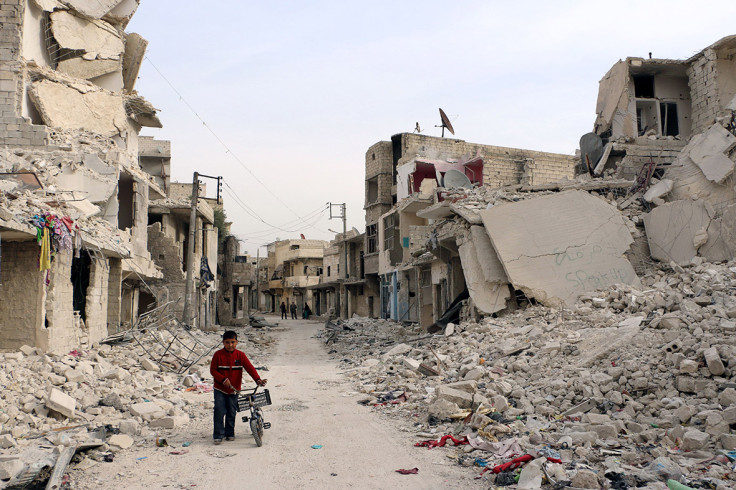Turkey Braced for Three Million Syrian Refugees If Fighting in Aleppo Continues

Turkey could see as many as three million Syrian refuges arrive in the country if President Bashar al-Assad's forces or Isis (Islamic State) insurgents continue to attack Aleppo, according to its foreign minister.
Mevlut Cavusoglu warned an influx of refugees could make their way towards Turkey as the fighting continues in Syria's largest city during the country's four-year conflict.
The US has begun airstrikes in Syria in a bid to defeat the Islamic terrorist group, also known as IS, but Assad's forces continue to advance on Aleppo, reportedly bolstered by additional fighters from Iran, Lebanon, and Afghanistan.
"Right now who is filling the void left by IS as a result of the coalition's air attacks? It is the regime," Cavusoglu told a news conference in Ankara.
"But there is not that much difference between the IS and the regime. Both kill cruelly, especially civilians. And neither hesitate to use whatever weapons are available to them."
Currently, Aleppo is controlled in parts by both the Syrian government and the rebels, with Isis also threatening supply routes by controlling areas in the north of the city, as well as sections in wider Aleppo province.
Turkey has publicly backed the Free Syrian Army (FSA), the collective name given to the groups of fighters battling against both Assad and Isis. Turkey is also trying to persuade the US to widen its airstrikes to include tackling Assad.
"A weakening of the moderate opposition, the FSA backed by the coalition... will make the adverse situation in Syria worse and more unstable," Cavusoglu added.
"Fearful civilians are fleeing from areas where IS, terrorist groups and the regime are gaining ground. A possible advance in Aleppo would mean the influx of two to three million people to the Turkish border to seek asylum."
The four-year Syrian civil war has now claimed as many as 200,000 lives and forced more than three million refugees to flee the country, around half of which have entered Turkey, according to the United Nations.
© Copyright IBTimes 2024. All rights reserved.






